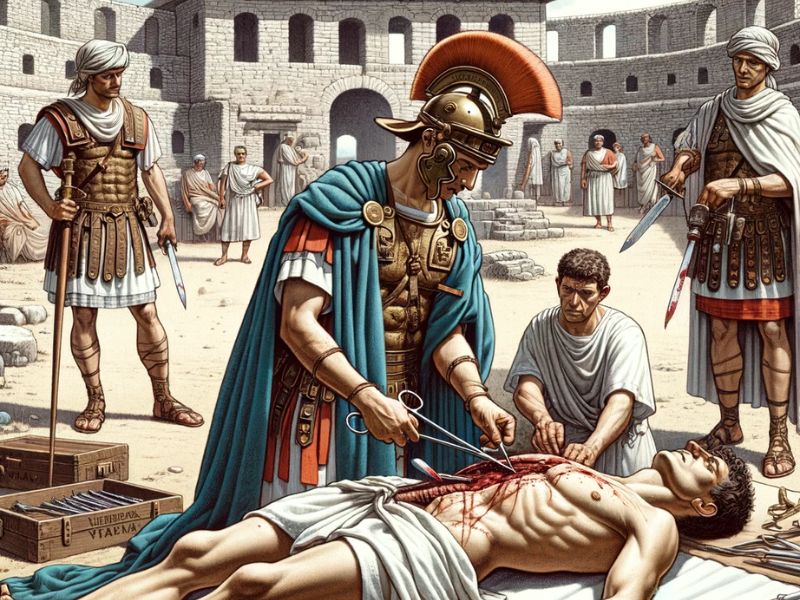
Medicine in the Roman Army: A Journey Through History
From Origins to the Sophisticated Care Systems for Legionaries
Origins and Development of Roman Military Medicine
Medicine in the Roman army underwent significant evolution over the centuries. During the time of Julius Caesar and the conquest of Gaul (58-51 BC), wounded soldiers were left in the camp while the army continued its march. With the advent of the professional army under Octavian Augustus (27 BC – 14 AD), there was the emergence of an organized medical corps. Young men who enlisted could count on a fixed salary from the military treasury (aerarium militare) and special benefits, including equite status for the medics, which granted them full citizenship rights and the equestrian ring. Recruitment into the army was subject to mandatory health assessment, accepting only healthy and strong men. The role of the medicus became crucial, with various specializations, including surgeons, ophthalmologists, and urologists.
Medical Practice and Surgical Instruments
Roman medics were often freed Greek slaves or individuals with Greek education in the field of healing. The treatment of simple wounds was the most common surgical procedure. Basic surgical kits included probes, hooks, forceps, needles, cauterization instruments, and scalpels. A common technique was suturing wounds with needle and thread, but in case of infection, the fibulae technique was preferred, involving the use of copper alloy pins passed through the wound and threads intertwined around them in a figure-eight pattern.
Valetudinaria: Roman Military Hospitals
Roman legions had military hospitals called valetudinaria, where more severe wounds and illnesses were treated. These hospitals were relatively small, capable of accommodating up to 5% of a unit. Soldiers in need of long-term care or convalescence could be discharged to recover elsewhere. By the 2nd century AD, almost all larger military camps had permanent medical staff, including doctors, assistants, and personnel dedicated to producing ointments and bandages. Capsarii, soldiers trained in first aid, provided basic care, while more qualified doctors handled more complex procedures.
Galen and His Impact on Military Medicine
One of the most influential physicians of this period was Galen (circa 130-200 AD), of Greek origin, who had a tremendous impact on the development of medicine. His early experiences were at the gladiator school in Pergamon, where he cared for the health of gladiators and took his first steps in anatomy and surgery. Galen’s knowledge, acquired through autopsies conducted in Greece, earned him respect and authority in the field of medicine. Galen was appointed as the court physician by Emperor Marcus Aurelius, thanks to his fame and expertise.
Sources


